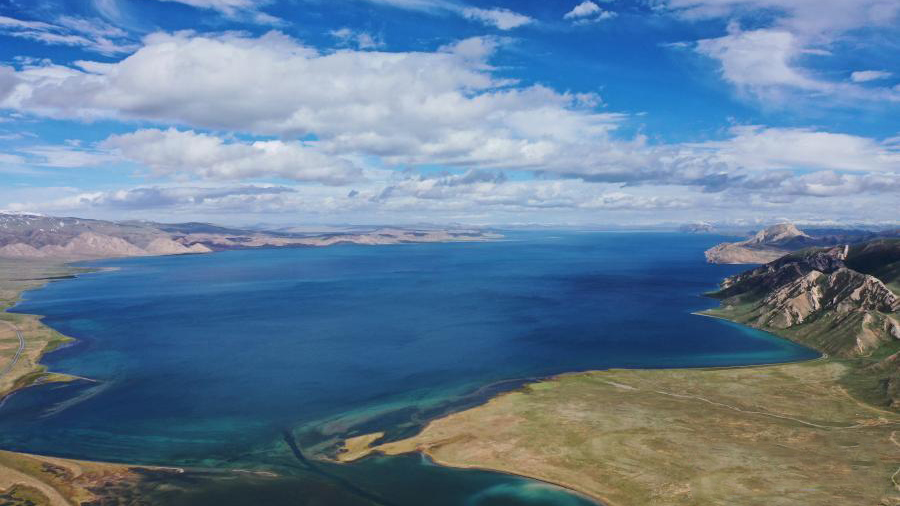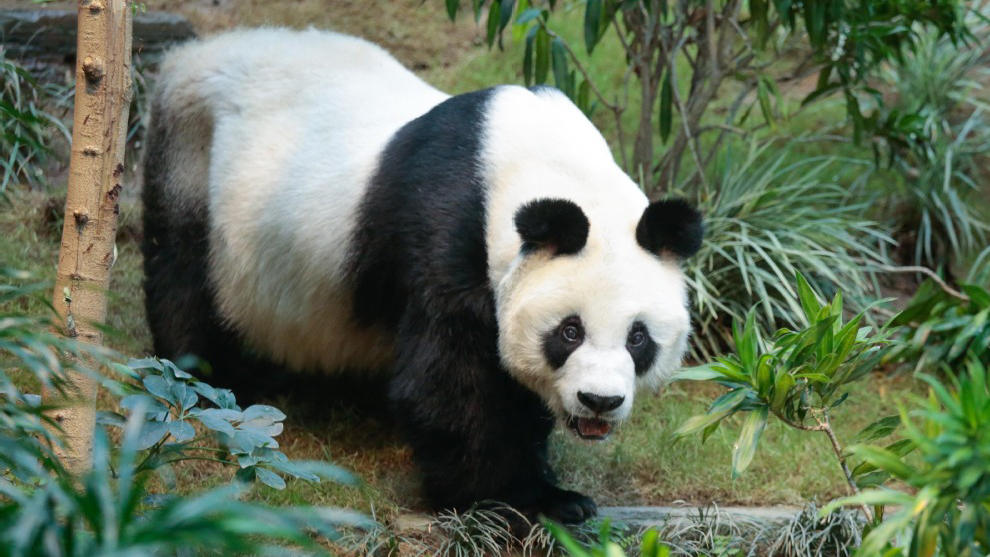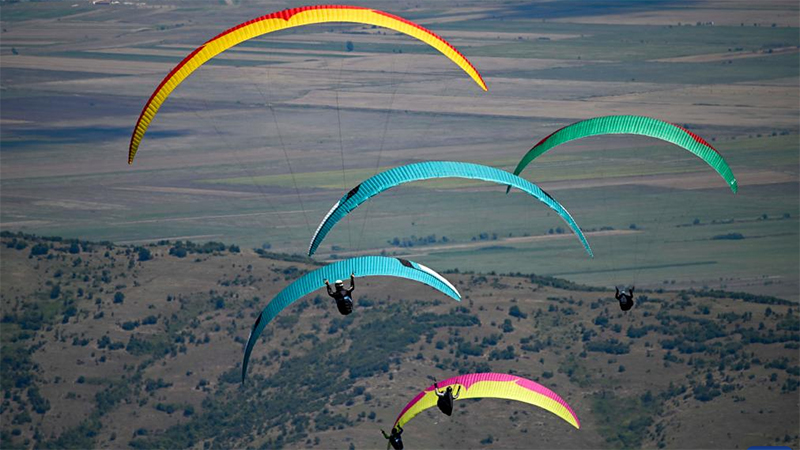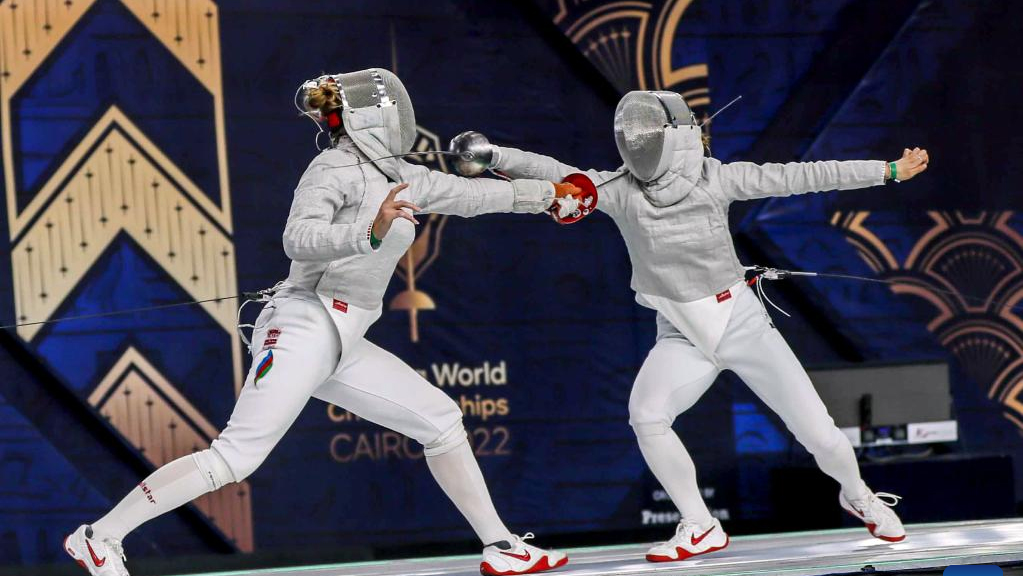WHO declares monkeypox outbreak int'l public health emergency
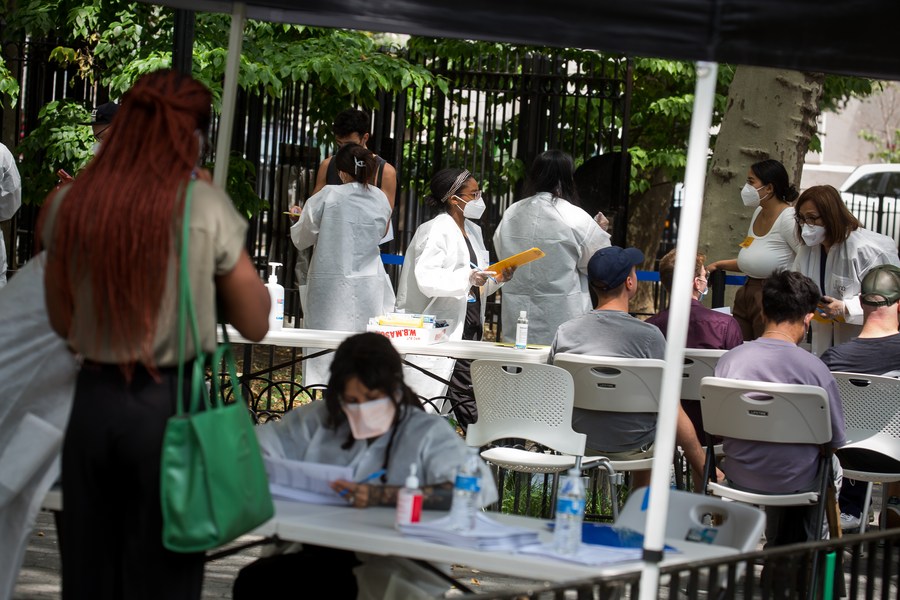
Health care workers assist people waiting to be vaccinated at a monkeypox vaccination site in New York, the United States, on July 14, 2022. (Photo by Michael Nagle/Xinhua)
After reconvening the WHO Emergency Committee on Thursday concerning the monkeypox outbreak, WHO Direcotr-General Tedros Adhanom Ghebreyesus made the decision at a press briefing on Saturday to sound the highest level of alert that the global health authority can issue for the time being, even without a consensus of the committee.
GENEVA, July 23 (Xinhua) -- The World Health Organization (WHO) officially declared on Saturday that the current multi-country monkeypox outbreak outside of the traditional endemic areas in Africa has already turned into a public health emergency of international concern (PHEIC).
After reconvening the WHO Emergency Committee on Thursday concerning the monkeypox outbreak, WHO Direcotr-General Tedros Adhanom Ghebreyesus made the decision at a press briefing on Saturday to sound the highest level of alert that the global health authority can issue for the time being, even without a consensus of the committee.
"So in short, we have an outbreak that has spread around the world rapidly, through new modes of transmission, about which we understand too little, and which meets the criteria in the International Health Regulations," said Tedros.
"For all of these reasons, I have decided that the global monkeypox outbreak represents a public health emergency of international concern," he noted.
He cited five reasons behind the decision. First, the information provided by countries shows that this virus has spread rapidly to many countries that have not seen it before; second, the three criteria for declaring a PHEIC under the International Health Regulations have been met; third, the advice of the Emergency Committee, even without a consensus; fourth, scientific principles, evidence and other relevant information which are currently insufficient and leave us with many unknowns; and fifth, the risk to human health, international spread, and the potential for interference with international traffic.
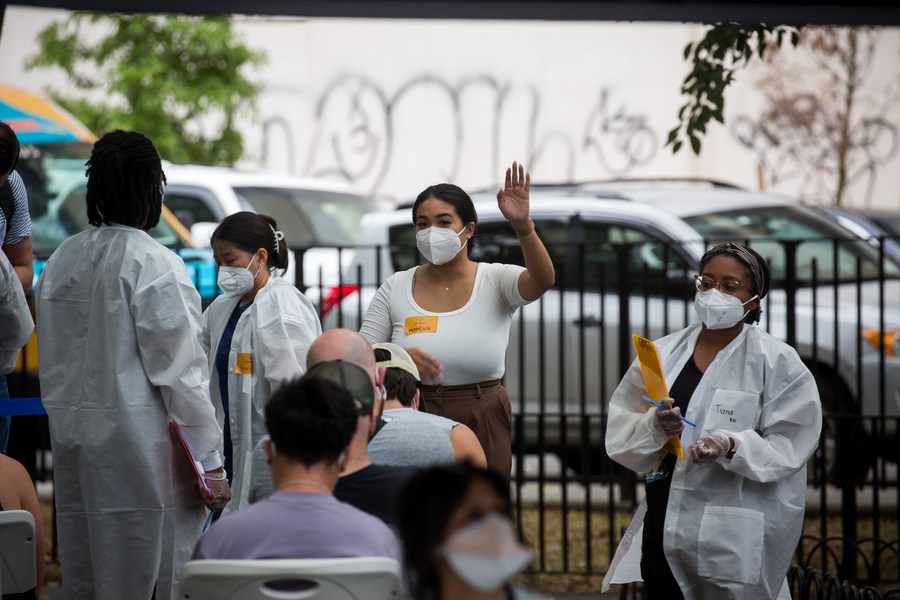
Health care workers assist people waiting to be vaccinated at a monkeypox vaccination site in New York, the United States, on July 14, 2022. (Photo by Michael Nagle/Xinhua)
"For all of these reasons, I have decided that the global monkeypox outbreak represents a public health emergency of international concern," he noted.
He cited five reasons behind the decision. First, the information provided by countries shows that this virus has spread rapidly to many countries that have not seen it before; second, the three criteria for declaring a PHEIC under the International Health Regulations have been met; third, the advice of the Emergency Committee, even without a consensus; fourth, scientific principles, evidence and other relevant information which are currently insufficient and leave us with many unknowns; and fifth, the risk to human health, international spread, and the potential for interference with international traffic.
However, he added that for the moment the monkeypox outbreak is concentrated among men having sex with men, especially those with multiple sexual partners. "That means that this is an outbreak that can be stopped with the right strategies in the right groups," he said.
Tedros first convened the WHO Emergency Committee in late June, after which the latter advised him then that the event had not constituted a PHEIC. According to Tedros on Saturday, the outbreak has continued to grow to see more than 16,000 cases from 75 countries and territories reported to WHO, including five deaths.
Monkeypox, first detected in laboratory monkeys in 1958, is assumed to transmit from wild animals such as rodents to people, or from human to human. Multiple clusters of the monkeypox virus have been reported within the past few weeks in several European countries and North America, which are regions where the virus is not normally found.
According to WHO, endemic monkeypox disease is normally geographically limited to West and Central Africa. The identification of confirmed and suspected cases of monkeypox without any travel history to an endemic area in multiple countries is atypical.
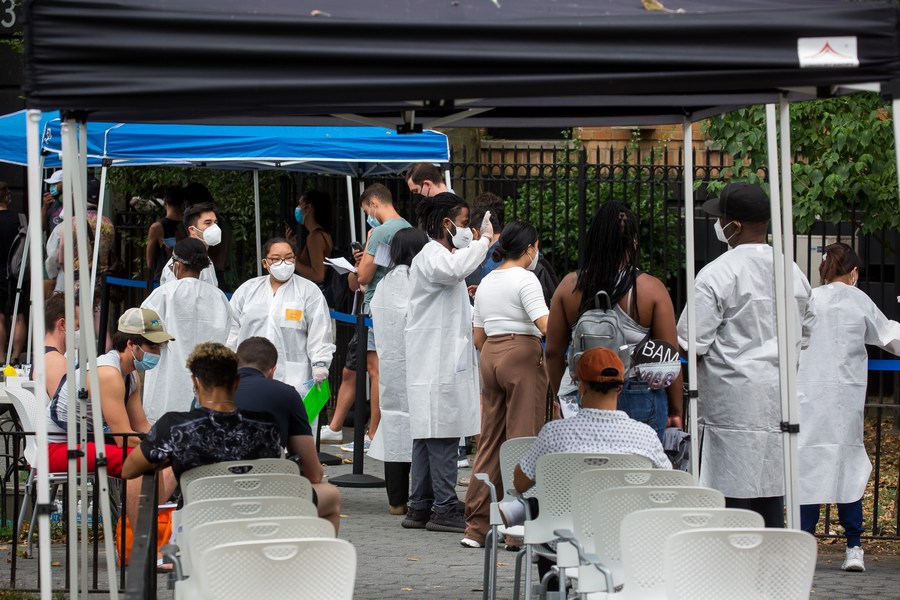
Health care workers assist people waiting to be vaccinated at a monkeypox vaccination site in New York, the United States, on July 14, 2022. (Photo by Michael Nagle/Xinhua)
Photos
Related Stories
- COVID-19 pandemic "nowhere near over":WHO
- WHO ramps up response in Eastern Africa amid looming health crisis
- WHO to decide whether monkeypox represents public health emergency
- Foodborne diseases affect 10 pct of world population annually: WHO
- G20 countries to discuss global funding scheme to face future pandemic
- WHO warns of further transmission of monkeypox over summer
- COVID-19 pandemic "far from over": WHO chief
- World Health Assembly rejects again Taiwan-related proposal
- Virus 'storm' far from over, says WHO
- Monkeypox onward spread highly likely in future: WHO
Copyright © 2022 People's Daily Online. All Rights Reserved.






